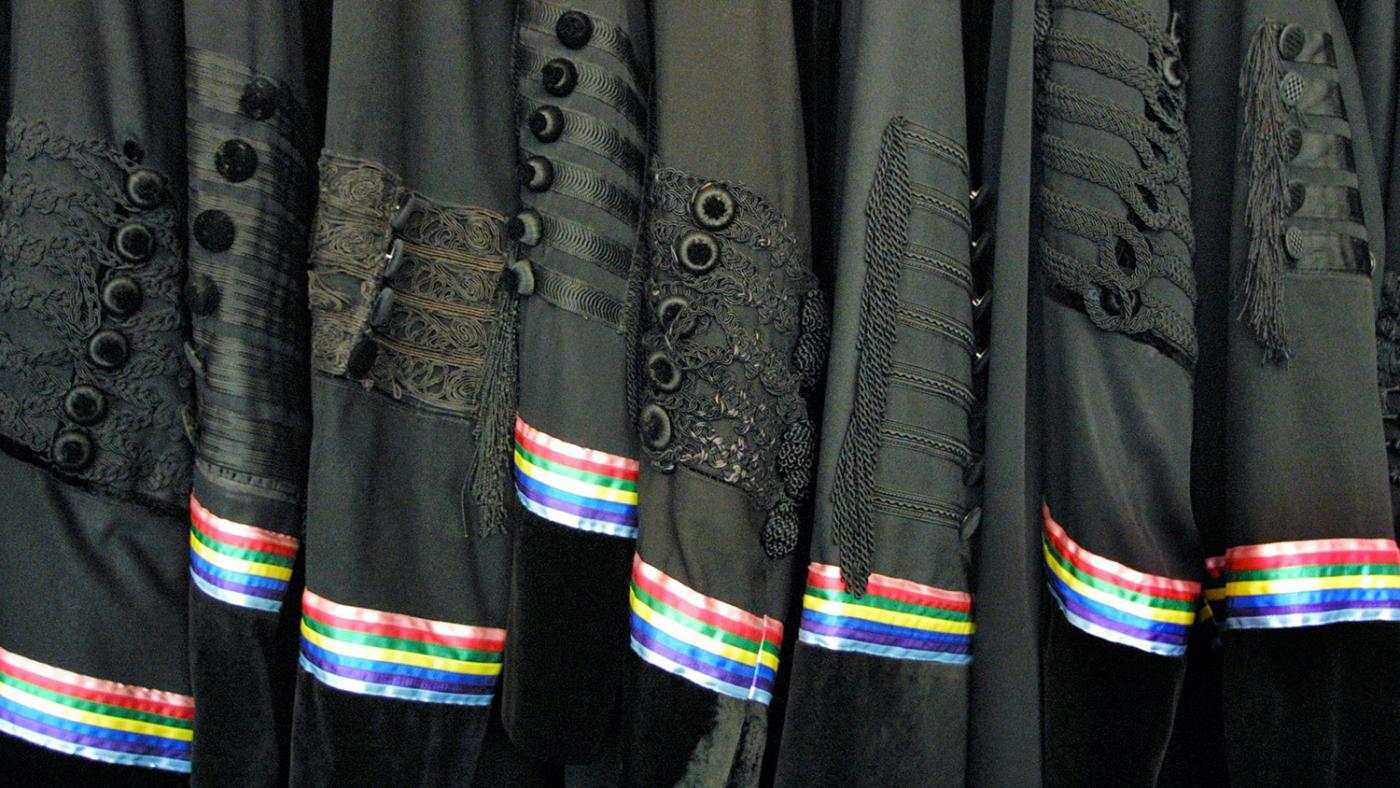Dress code adjusted for PhD candidates too
From now on, professors will not be the only ones wearing gowns in PhD defences

Utrecht University is the first university in the Netherlands to allow academics who do not hold the title of professor to wear a gown at PhD defences. Rector Henk Kummeling explained the decision during a meeting of the University Council last week. "We want to make it clear that we give equal weight to all of the questions that are asked to the PhD candidate during the defence.”
At a PhD defence, the candidate is supposed to defend their research to a committee of experts, who will pose a series of questions about its contents. The minimum requirement to participate in a PhD committee is to have a PhD degree and to be an expert in the field in question. It is up to the committee to ultimately decide whether the candidate will be able to call themselves a "doctor". Up until now, only those with the title of professor were allowed to wear a gown on such occasions, but this permission has now been extended to all members.
Equal opportunity
The announcement didn't come as a total surprise, given the mounting criticism of the rigid hierarchical distinction between professors, associate professors and assistant professors. Critics advocate for giving all academics the same rights, allowing all of them to call themselves professors, as is the case in other countries.
According to the chairman of the Utrecht Young Academy (UYA), Peter Bijl, young scientists have recently urged all Dutch universities to make these adjustments. According to Bijl, the oceanographer Erik van Sebille, a former UYA member, has played an important role in the introduction of the measure in Utrecht.
According to the university, the decision to change the rule followed an urge of Athena’s Angels, a group of four prominent female professors who advocate for equal opportunities for all scientists. The decision is also in agreement with the university’s Recognition & Reward policy, explains UU in a statement to the press.
The scientific uniform
“We are very happy about this,” Bijl celebrates. “It's true that we are concerned about the equality of academic expertise of all committee members. It must be clear to other committee members, to the PhD candidate and to the public that there is no difference. Something as banal as a gown can make that clear. It’s a uniform that exudes authority.” In fact, Bijl was the first non-professor to wear a gown last Friday afternoon during a PhD defence in the Utrecht University Building. He is an associate professor and participated in the PhD committee as a co-supervisor.
UU informs that it intends to make gowns available on loan to interested parties. UU emphasises that it is not in its plans to allow professors without a professor title to wear a gown at other official ceremonies, such as the university's anniversary celebrations and the Opening of the Academic Year.
But that wasn't the only change introduced by the dress code for PhD defences. PhD candidates and their paranymphs were also given more freedom with regard to their clothing. Up until now, men were supposed to wear a dark suit and tie or dress suit, while women had to wear a suit or a festive dress. The university now employes "more inclusive" words. From now on, the regulation reads: “The clothing of PhD students and paranymphs must be in line with the value that Utrecht University attaches to the defence. From tradition, one can consider a dark suit and tie, a dress suit, a jumpsuit, a suit or a festive dress.”
Voting majority
Another striking revision is that the university has no intention of making the defence a purely ceremonial meeting, as the Dutch PhD Network (PNN) had asked after a painful incident in which a PhD candidate in Tilburg was not granted a doctorate after her defence.
“A PhD programme means that a PhD candidate must be able to present and defend their research results to a PhD committee. They must also be able to explain the research to a wider group,” UU explains to DUB.
Neither has the university changed the agreement that a thesis can be rejected by a PhD committee if most members consider the defence insufficient. Tilburg University has recently decided that a committee must unanimously decide to reject it.
According to UU, a lot of work has been done throughout the past few years to improve the supervision of PhD candidates. The new regulations also emphasise the supervisor’s duty of care explicitly. “If the minimum requirements of the quality assurance system for the PhD programme are met, it is virtually inconceivable that a PhD candidate will not receive the doctorate.”